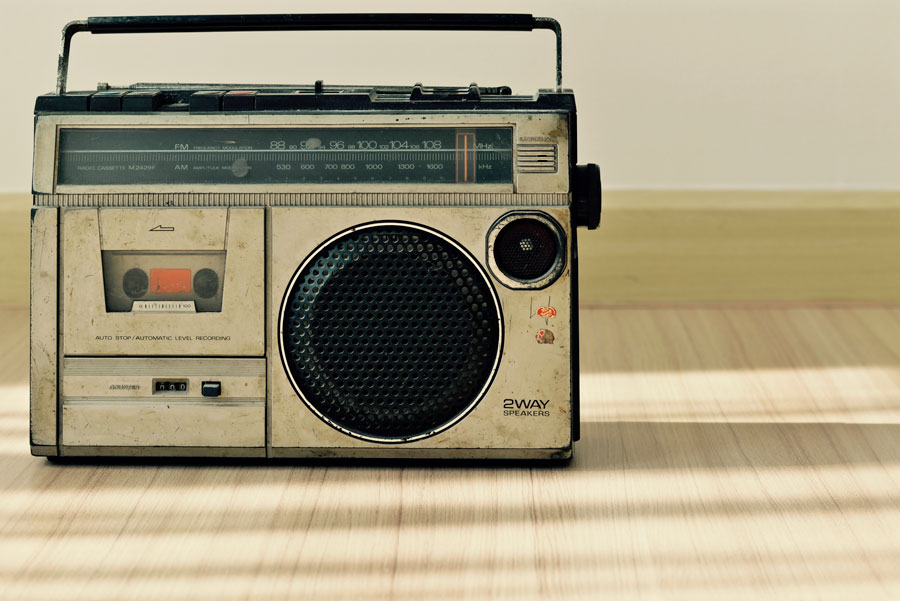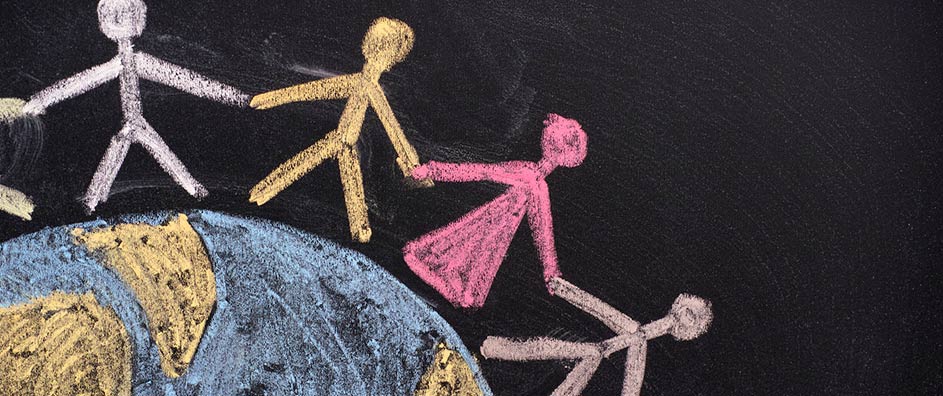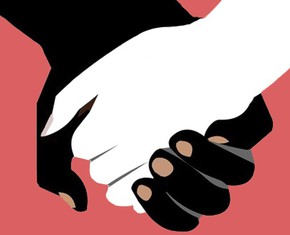The views expressed in our content reflect individual perspectives and do not represent the authoritative views of the Baha'i Faith.
As I wrote this series of essays on the subject of the reality of racial categories, I realized that it might upset some folks. I’m sorry if that’s the case—anything that has to do with race has the potential to offend, and I hope these essays haven’t done that.
After all, many people center a significant part of their identity on skin color and the various cultures that go with it. Because the world has separated us humans by skin color for so long, most of us have bought into those artificial categories, and treat them as if they were real.
As we’ve seen in the earlier essays in this series, though, race has no scientific basis at all—it’s socially constructed rather than biologically valid. But the social constructs we build around racial identities can become very real, and have serious consequences. I learned that hard lesson as a teenager.
When I got my first portable radio—I think I was about 13 at the time—I played it constantly, absolutely thrilled that I could carry music with me wherever I went. But that radio, or rather the music it played, quickly alienated many of my white friends. Where I grew up in Washington State, only one “black” radio station played the sweet soul music I loved. For some reason I didn’t fully understand at the time, I couldn’t bear to listen to the vapid pop music on the “white” radio stations my friends all liked. Instead, I listened to the soul station constantly.

My white friends—or at least I thought they were friends—heard me listening to that music and made their disapproval obvious. People moved away when I walked past. One girl I liked told me she couldn’t hang around with me anymore. When I asked her why, she said “My girlfriends don’t appreciate the music you listen to.” Despite the peer pressure, or maybe because of it, I refused to change the radio station. It made me a pariah, suddenly friendless in my all-white school.
I’ll never forget the day when another white teenager came up to me on my way home from school and said, “Oh, you like listening to that nigger music, huh? You must be a nigger lover.” Then he slugged me as hard as he could, knocked me over and stomped on my radio.
The pain his fist inflicted went away, and I got my radio working again, but his hateful comment changed my life. It made me realize for the first time that my inner spirit related to black culture—its music, its warmth, its sense of humor, its aliveness—much more than I ever related to white culture. Give me Chuck Berry over Pat Boone any day, I thought.
Also, it made me realize that my assailant’s bigotry and racism only diminished him.
After that violent little racist incident, I began paying more attention to the great divide between “white culture,” the dominant social paradigm, and the cultures of marginalized minorities. I listened to more soul music, and I listened even closer. That music had a huge impact on me—it awakened my consciousness and made me think and feel. The next year, after I turned 14, I joined the Congress of Racial Equality and the NAACP, hoping to have some small role in the ongoing struggle for civil rights in my country.
That experience with people of all colors led me to a spiritual quest, trying to find a Faith that shared my newly-awakened passion for social justice and equality. In the course of the civil rights movement, I met several Baha’is, of every color, who fervently believed in and defended the oneness of the human family. I knew then that I had found my soul’s true home:
For a single purpose were the Prophets, each and all, sent down to earth; for this was Christ made manifest, for this did Baha’u’llah raise up the call of the Lord: that the world of man should become the world of God, this nether realm the Kingdom, this darkness light, this satanic wickedness all the virtues of heaven — and unity, fellowship and love be won for the whole human race, that the organic unity should reappear and the bases of discord be destroyed and life everlasting and grace everlasting become the harvest of mankind. – Abdu’l-Baha, Selections from the Writings of Abdu’l-Baha, p. 30.
The Baha’i Faith, I learned, not only believed in the harmony, unity and fellowship of the whole human race, but had a clear and cogent plan for its achievement:
…in this wondrous Dispensation the earth will become another earth and the world of humanity will be arrayed with perfect composure and adornment. Strife, contention, and bloodshed will give way to peace, sincerity, and harmony. Among the nations, peoples, kindreds, and governments, love and amity will prevail and cooperation and close connection will be firmly established. Ultimately, war will be entirely banned… and disputes will, with perfect justice, be settled before a universal tribunal of governments and peoples, and any difficulties which may arise will be resolved. The five continents of the world will become as one, its diverse nations will become one nation, the earth will become one homeland, and the human race will become one people. Countries will be so intimately connected, and peoples and nations so commingled and united, that the human race will become as one family and one kindred. – Abdu’l-Baha, Some Answered Questions, newly revised edition, p. 73.
















Comments
Sign in or create an account
Continue with Googleor